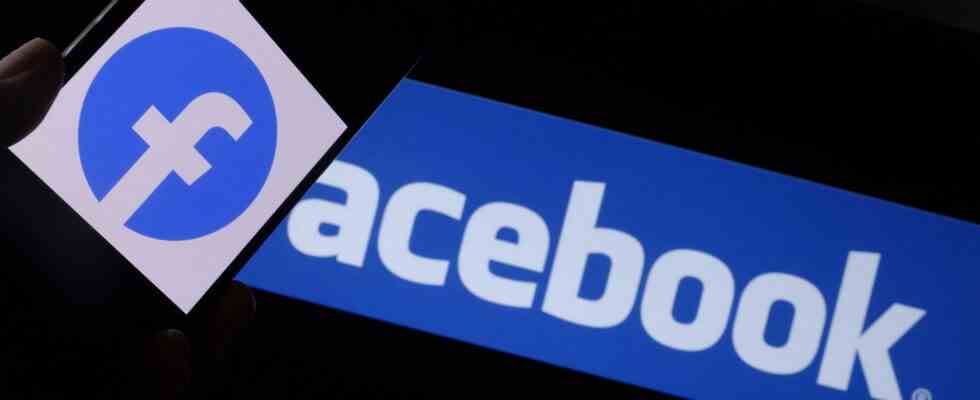Exclusive
Status: 07.03.2023 2:09 p.m
A year ago, the EU imposed sanctions on “Russia Today”. Its content may no longer be seen in Germany and other EU countries. An evaluation of WDR, NDR and SZ shows how RT articles continue to spread on Facebook.
Their names are “Norbert”, “Gunda” or “Olga” and they post every minute on Facebook. It is primarily about Russian disinformation and propaganda, for example Kiev would plan an attack on Russian-backed Transnistria or the USA would prepare an offensive with psycho-weapons – Russian propaganda in the spirit of the Kremlin. It is published on the RT website, which has been sanctioned by the European Union for a year now, known in Germany as “RT DE”. From there they then spread via Facebook and other platforms, although this is not allowed in the EU due to sanctions.
A new data analysis from shows how comprehensively this is happening on Facebook WDR, NDR, “Süddeutsche Zeitung” and “Debunk.Org”. Since the beginning of March 2022, RT has shared content from the German-language offshoot “RT DE” on Facebook or Instagram more than 14,000 times. According to Facebook’s Crowdtangle analysis site, they generated around 250,000 interactions on the platform within a year, including 120,000 likes.
Easy to bypass
This is possible, among other things, because Facebook did not delete the “RT DE” account on its network, but only “geo-blocked” it, which means that the site is no longer accessible to German users. A barrier, but easily circumvented. If you want to break the block, you only have to use an online tool that pretends to be a user from another country, a so-called VPN. Technically this is trivial, RT even gives detailed instructions on its website and Facebook how to do it. In most cases, a note appears that it is a Russian state-controlled medium, but the content is still fully visible.
Björnstjern Baade, private lecturer at Freie Universität Berlin, sees the sanctions as a clear obligation to completely block and delete RT content: “The EU regulation prohibits all operators from distributing the content of the sanctioned media. Internet providers must block websites that provide this content, social media must delete corresponding content. The regulation applies immediately and aims to comprehensively prevent the dissemination.”
Facebook’s parent company Meta apparently does not share this view. Instead, when asked, it says: Since the first days of the war in Ukraine, Meta had imposed restrictions on state-controlled Russian media sites and accounts. “We’ll also flag and downgrade posts by people that contain links to Russian state-controlled media sites so users are less likely to see them, and notify users before they share or click on those links so they know where they lead.”
Sabine Verheyen (CDU), Chairwoman of the Culture Committee of the European Parliament, does not consider this to be sufficient and clearly sees the platforms as having a responsibility. “The platforms have been given the obligation to take down this illegal content,” says Verheyen.
The AfD gets involved
Among those distributing RT articles are around a dozen groups and individuals with links to the AfD. District associations such as the AfD district association Harburg-Land, the AfD Rheinisch-Bergischer district or the AfD city association Kaarst post messages from “RT DE”, for example that the Bundeswehr is involved in bioweapons research in Ukraine. These posts are still easily accessible a year after the sanctions. The AfD Rheinisch-Bergischer-Kreis confirms the post on request, but invokes freedom of expression and explains that media law falls within the cultural competence of the national states and that, in their opinion, the EU has no regulatory competence here. Other AFD associations did not respond to inquiries about the posts of “RT DE” content.
Experts believe that the distribution of RT content by politicians is part of Russia’s strategy – and dangerous. “When it comes to politicians who spread pro-Russian content to their existing audience, they sometimes have more influence than the Russian state broadcaster itself would have,” says Julia Smirnova, who researches online disinformation for the Institute for Strategic Dialogue . The audience then has more trust in the content, says Smirnova.
RT said on request that “RT DE” has always broadcast from Moscow since its launch and serves a loyal, German-speaking audience from there. Western institutions have long sought to restrict RT DE’s journalistic work and prevent public access to information: “EU sanctions have disrupted the operations of RT DE Productions, a Germany-based team that contributed content to our Moscow operations has made untenable,” according to RT. We will continue to use all available means and platforms to reach the audience.
As a troll for Putin
The fact that such content is so widespread in social media is also due to the many troll factories and fake accounts that exist in Russia. Investigative journalist Ksenia Klotschkowa gives an insight into how such troll factories work. She has been recruited for the St. Petersburg troll factory “Cyber Front Z”.
Her job there: to write 200 comments a day on social media for the equivalent of less than 500 euros a month at the time. “In each team there was one person who chose the links: He shared them in the group and suggested what content should be conveyed,” she says in an interview for the ARD. For one day she worked at “Cyberfront Z” where she worked for different platforms. Telegram, YouTube, Instagram – they would have served a different platform in each room. So she documented it with photos.
Meanwhile, Putin confidante Yevgeny Prigozhin, head of the paramilitary Wagner group, has acknowledged his support for “Cyber Front Z.” Prigozhin is also considered the founder of the well-known Internet Research Agency (IRA) troll factory, which intervened in the 2016 US election campaign on behalf of Trump. “We interfered, we interfered and we will continue to interfere.” Only after the “Cyberfront Z” troll factory became known in the summer of 2022 did Meta block the corresponding Instagram accounts.

